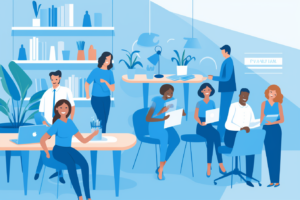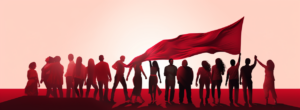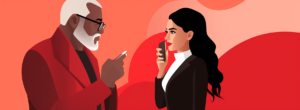Future of work trends: Why culture must be a priority in the post-COVID world
- 5 Min Read
From tech to talent, businesses are going through an intense period of change, but is enough being done to build strong workplace cultures? HRD Thought Leader Terence Mauri argues for the importance of culture in ensuring business and employee success in the time ahead.
- Author: Terence Mauri
- Date published: Aug 24, 2020
- Categories

With headwinds to navigate, companies are looking for a beacon to guide their actions. Bestselling author, speaker and HRD Thought Leader Terence Mauri argues that designing a culture-first organization is the best way to embrace disruption and reimagine potential in relation to the future of work trends.
If we consider ‘what’s the one thing you could do differently today to help your organization return to a new normal,’ where would you start? With disruption an everyday reality, changing the company culture to be more agile, risk-tolerant, and experimental is the biggest HR and business opportunity and challenge of the decade. Companies that unlock a winning culture at speed and scale will transform at a pace that leaves their competitors behind.
‘Company culture’ can seem like a fuzzy term but I define it as the mindsets, values and behaviours practised in your organization, especially when you’re not in the room. Culture is like pouring concrete. It can take a while to set, but then is much more difficult to change afterwards. Hack Future Lab, a London based think tank took the pulse of 1,000 HR leaders globally.
An overwhelming 84% agreed that culture is critical for business success and 60% agreed that culture is more important than strategy or the business model. The bad news was that more than half the group reported that culture was not a strength and was not even on the C-suite’s agenda. The bottom line is that culture is seen as incredibly important, but mismanaged and undervalued in most organisations.
Make culture a priority
Hack Future Lab’s research shows organizations that lead with culture are more energising to work for. Culture-first organisations such as Salesforce, Netflix and Starbucks are tuned in to the experiences of their workforce and continuously improve them — simplifying and digitizing repetitive tasks while increasing the meaningful moments that employees crave. They are bravely and radically redesigning their cultures to deliver what employees and colleagues truly want, a vital aspect of the future of work trends.
Enterprise software leader Atlassian has baked culture into the DNA of the business, alongside growth and profitability. At its core are five values that shape its culture, influence who they are, and even who they hire and promote. Their values describe at the most fundamental level what they stand for and act as beacon to guide their actions and navigate change during turbulent times. Atlassian’s values include open company, not bullshit; play as a team; build with heart and balance; be the change you seek and don’t #@!? with the customer.
Energize the employee experience
The global pandemic has turned our world upside down and accelerated disruption, from the blurring of industry lines and economic and geopolitical uncertainty, to disruptive technologies and the shrinking of company and product lifespans. As we transition to a new normal, there is fear and excitement. In the short term, from the unknown business fall out of a pandemic and, in the medium term, from the continued impact and opportunities of AI and automation. Hack The Future’s research shows that 83% of executives see culture playing a far greater role in sustaining a thriving workforce in a post-Covid world.
As HR leaders prepare to return employees to the workplace, they must ask the question how do we cultivate a healthy, productive and energised workforce willing to own the transformation journey — and resilient enough to handle the challenges brought by a global pandemic. Companies such as games developer Ubisoft and microblogging platform Twitter report that energised employees are twice as likely to say their organisation is transparent about which jobs will change, and rank uncertainty last in reasons for feeling burnt out.
Energized employees are two times as likely as de-energized employees to be excited about the prospect of reskilling and three times more likely to be satisfied with the company, with no plans to leave. Why? In some part because they’re more likely to feel a strong sense of what the late psychiatrist Oliver Sacks called the 3B’s: belief, belonging and becoming. That is, at the deepest human level humans need something to believe in, a strong sense of connection and be in a perpetual state of ‘becoming’, which means lifelong curiosity and curiosity.
Don’t go it alone: co-create for energy
At this time of unrelenting change, companies may find themselves alternating between four distinct phases depending on the course of the pandemic – 1. Recover revenue, 2. Rebuild operations, 3. Rethink the organisation and 4. Move from ‘doing digital’ to ‘being digital’. Our research shows that the best business and HR leaders will place culture at the heart of their decisions.
Culture-first pioneers such as Microsoft and Adobe listen and use data and insights to understand their employees, colleagues and customers’ pain points. And they take action to improve individuals’ futures while enhancing their present-day experience. Hack Future Lab’s research shows organisations that lead with culture are more energising to work for and more resilient in the face of adversity. Now it’s the people delivering the experience who are driving the advantage — and the differentiator for them, too, is culture.
What you do is who you are
In relation to future of work trends, how do you design a culture that helps people achieve the most exceptional version of themselves? Most cultures happen by accident, not by design. One of the key insights from Zen philosophy is that culture is not a set of beliefs, it’s a set of actions. Culture is now your operating system. With so many unknowns, it’s time to flip the switch, turn on the lights and ask the question – are you ready to design a culture with humans in mind?








